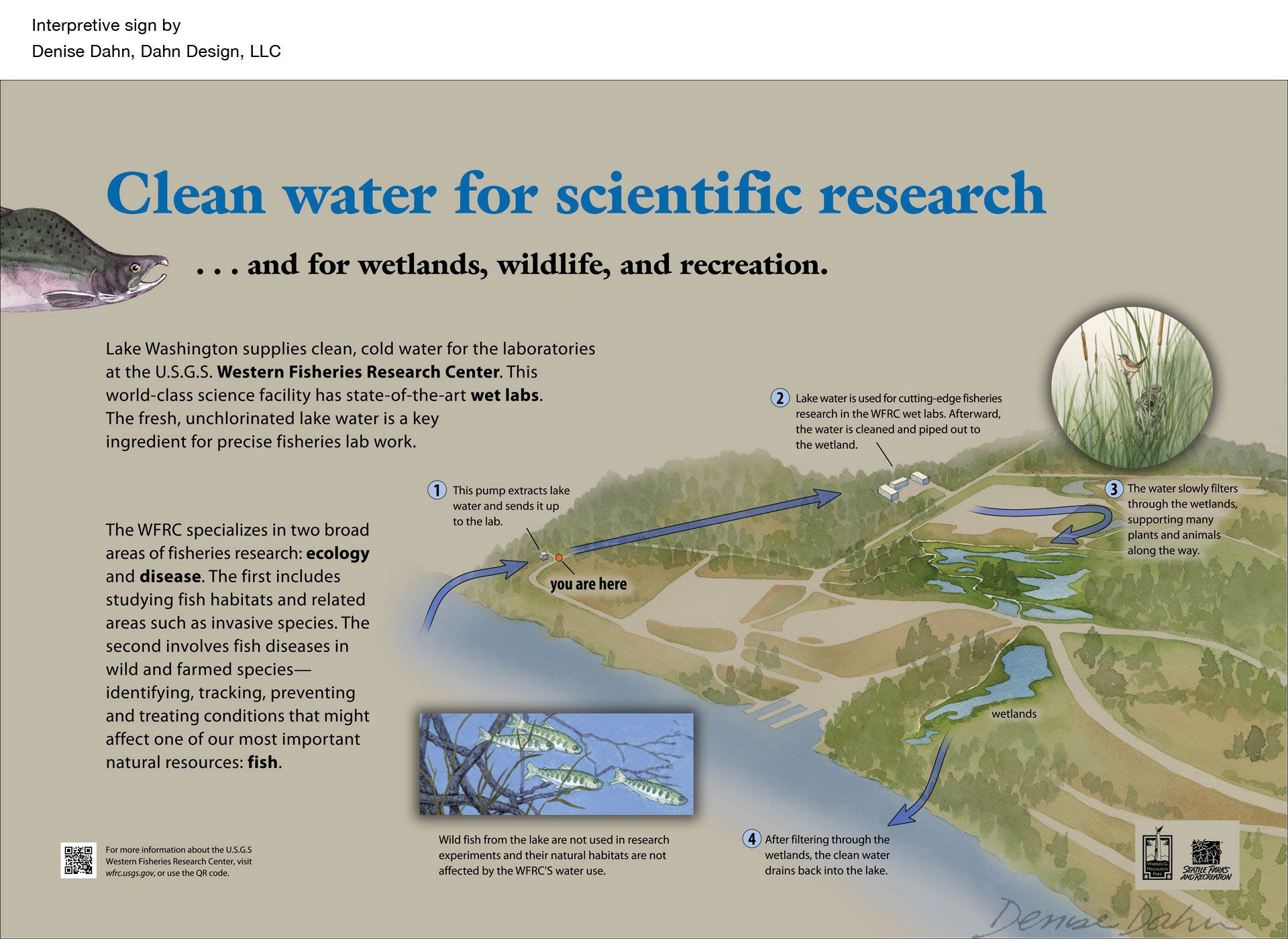FOR IMMEDIATE RELEASE
September 24, 2018
Federal Lab Dumps Fish Pathogens into Lake Washington
Six-Month High-Risk Bio-Breach Prompted No State Action as Recurrences Loom
Washington, DC — For six months last year, a federal laboratory in Seattle released high-risk aquatic pathogens into the state’s second largest lake, according to official state records posted today by Public Employees for Environmental Responsibility (PEER). The Washington Department of Fish & Wildlife (WDFW) declined to take any enforcement action despite previous and continuing breakdowns at the lab.
The U.S. Geological Survey (USGS) operates two animal containment biosafety labs at its Western Fisheries Research Center (WFRC) researching dangerous invasive viruses and bacterial fish pathogens. On June 29, 2017, WFRC officials discovered that its biosafety level-2 (BSL-2) lab had been discharging untreated or partially treated pathogen-contaminated wastewater into the wetland in Warren G. Magnuson State Park draining into Lake Washington. The lab’s effluent was last checked the prior January. The lab’s chlorination system had broken down, but it lacks an alarm to indicate when its chlorine line is clogged.
Three weeks later in a July 21 memo, WFRC acknowledged this containment breach in a laconic “Notice of Standing Operating Procedure Deviation.” But the research center did not know for how long, and how many, pathogens were flushed into Lake Washington, which also is the source of the lab’s water. Nor did USGS promise to install a chlorine meter alarm, instead merely vowing to tighten monitoring protocols.
This breach also violated conditions of WFRC’s state fish transport permit. But in an October 16, 2017 email, Kenneth Warheit, WDFW’s Supervisor of Genetic and Health Laboratories, wrote:
“I do not expect that we will impose any penalties associated with this violation to your transport permit. However, after consulting with the WDFW’s Director and Fish Program Assistant Director, and co-managers, we may impose a moratorium of future transport permits associated with fish being transported to WFRC…”
These documents obtained by PEER from WDFW under the state Public Records Act also indicate that no such moratorium was imposed, nor was any other corrective action taken.
“This is a shared federal-state abdication of both biosafety and accountability,” stated PEER Executive Director Jeff Ruch, contrasting Washington’s recent ban of non-native fish farms after a large-scale failure of a commercial net-pen for Atlantic salmon. “Would the state have treated this massive bio-breach with more seriousness had it occurred at a private facility, as opposed to a government agency?”
The WFRC has suffered a long history of maintenance problems causing containment losses. In addition, serious breakdowns have recurred in recent months. While the aquatic pathogens WFRC uses in animal testing are not known to cause human disease, they carry their own unknown and sometimes dangerous pathogens, such as virus species from the rabies virus family.
“This accident occurred because the U.S. Geological Survey prioritizes its administrative convenience over environmental protection,” added Ruch, noting that USGS laboratories are not subject to external accreditation. “By all indications, another, even bigger biosafety breach could easily happen tomorrow.”
PEER today filed a request with the Interior Department’s Office of Inspector General for an investigation into WFRC’s biosafety record, history of maintenance breakdowns, and why no responsible official has been held to account.
###
See the USGS Notice of SOP “Deviation”
Scan WDFW email signaling no penalty
Read PEER’s complaint to the Inspector General
Look at long history of WFRC maintenance problems
Clean water for scientific research” sign WFRC placed in Magnuson park
